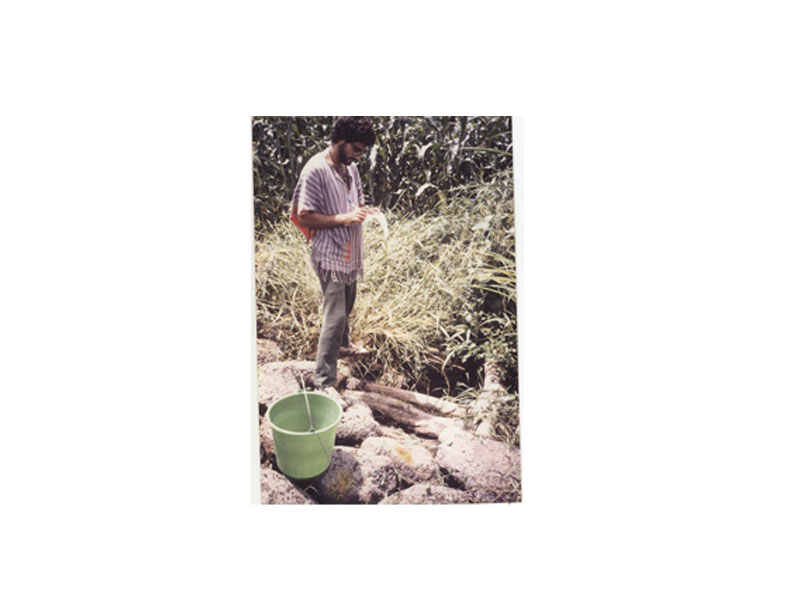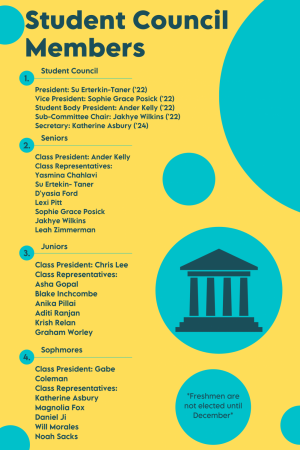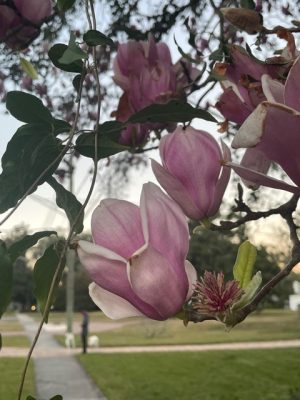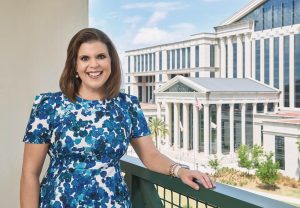Doctor Across Borders
May 5, 2017
On a typical day, it’s about 5:15 to 6 am when the generic iPhone alarm echoes through Timothy Richard Hastings’ house, and he puts on his wrinkled teal scrubs to drive to work. He opens a car door that creaks, sits on leather that is cracked, and starts “burning oil,” a problem caused by a faulty gasket. “It’s on its way out,” he says about his (formerly his wife’s) old 2008 Suburban while he tacks on more miles to the staggering 210,000. The vehicle is littered with everything from bone-model parts and x-rays to unread orthopedic journals and coupons for Keurig Coffee; but as long as it doesn’t break down on JTB during his commute to Baptist Health Hospital, he’s content with what he’s got.
I’m interviewing a doctor, so by nature one would assume he would perform some sweat-inducing, nerve-wracking, life-saving surgery, but that’s an illusion. “It’s a privilege to take care of people, but like everything else there are days I love it and days I don’t. But every day is different and it’s always a challenge.”
He strolls into the office, gets a cup of Keurig Coffee and a banana, checks who he’ll be seeing today, and begins “a non-stop chain of patients.” Being a doctor isn’t as glorious as Grey’ Anatomy pegs it to be.
When a patient like Patient X (patient-doctor confidentiality) comes in to have her dirty heroin-needle-induced abscess opened up, the “Campbell’s Cream of Chicken-looking pus” washed out, and packed full of antibiotics by Dr. Hastings, Patient X doesn’t realize that those very competent hands became competent by building wells in Mali and cleaning shrimp tanks in Kenya.
In 1986, during his junior year at Dartmouth College, Hastings took a semester in Kenya for an environmental studies program. Spending the first three months in foreign study, he lived with a Kenyan family and learned about the culture. Then he spent two weeks in the mountains. Hastings said, “We went hiking near Mount Kenya with the Samburu tribe and another few weeks with the Maasai.” After getting to know the various cultures of Kenya, Hastings and his friend received a grant from the college to go work with the U.N., specifically on an aquaculture project. As undignified as it sounds, cleaning shrimp tanks was the best part of his trip. They rented a “big” (Kenya big, not Ponte Vedra Boulevard big), beautiful house on the Indian Ocean, and “cleaned tanks without a care in the world.”
With lots of spare time, he went snorkeling in the Malindi National Park. He recalls the clear blue water, abundant with barracuda and sea turtles. For six months, he enjoyed paradise while getting to know a different culture. The trip inspired him to continue foreign studies in the Peace Corps.
In 1987, fresh out of college with a degree in environmental studies, Hastings wanted to gain overseas experience so that he could be employed in the foreign services. He applied for water resources management in the Peace Corps and was assigned to build small wells and dams in Mali, West Africa.
His first job while living in an African village was not only learning the language and culture, but also learning how to learn it. Because Mali was formerly a territory of France, he learned French and the native Bambara, which made him a hexalingual (English, French, Italian, Swahili, Spanish, and Bambara); although now he says he’s monolingual.
Upon talking about Bambara, he looks up some words, and with a broad smile, gazing through his reading glasses, he repeats the words out loud with an accent. “This brings back some memories,” he says. “Nba” he continues, is how the men greeted each other because when asked how they are doing, nba meant “I’m a man.”
After learning about his job, he rode his U.N.-provided motorcycle down dirt roads to his assigned village, Gouala, “A village with 500 people, a bunch of huts, and one road that ran through it.”
“It was tough because you’re by yourself,” says Hastings.
Although he lived alone in his cement-floored, tin-roofed, mud-walled hut, he did have a pet deer, dog, and lemur (not at the same time) to keep him company. “If anyone in the village found small animals, they’d sell it to me.”
The nearest people were about five miles from Gouala, so for growing season he interacted with the locals, and during off-season, built wells, dams, and lectured on health. Hastings said, “There was a lot of down time. If you couldn’t take it anymore you could drive an hour to Ouelessebougou for a beer or to get some mail.”
He remembers thinking that Peace Corps assignments were like highschool cliques: the cool kids down in Bougouni were in heaven, compared to the average Joes in Gouala; but the people up North in the Sahara were just “an odd bunch.”
He joined to build roads and improve Malian infrastructure, but gained a great understanding on how important health is in the world. “I realized how poor the general health is; basic everyday health is so important to them. They had one doctor who knew very little, and getting sick meant you were in trouble.” He never pursued the foreign services because the process was heavily political, but he saw the greater issue in health and planned to become a doctor and donate his time overseas.
Patient X won’t know the journey that led Dr. Hastings to become an orthopedic surgeon, but he’s not the bragging type. Hard work in Africa taught him humility. That’s why he doesn’t drive some turbo charged, low riding, flashy Porsche like stereotypical doctors. He’ll drive cars that barely function, and be content with what he’s got. Dr. Hastings uses his experiences in Kenya and Mali to shape his life, he learned from the Maasai tribe that you’ve got to “use everything you have”.







